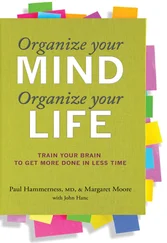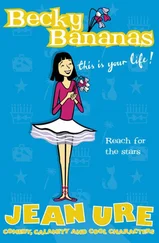Jonathan Evison
This is Your Life, Harriet Chance!
November 4, 1936 (HARRIET AT ZERO)
Here you come, Harriet Nathan, tiny face pinched, eyes squinting fiercely against the glare of surgical lamps, at a newly renovated Swedish hospital, high on Seattle’s First Hill. It’s an unseasonably chilly Wednesday in autumn, and the papers are calling for snow. Roosevelt by a landslide! they proclaim. Workers grumbling in Flint, Michigan! In Spain, a civil war rages.
Meanwhile, out in the corridor, your father paces the floor, shirtsleeves rolled to the elbow. Clutching an unlit Cuban cigar, he checks his wristwatch. He’s got a three-o’clock downtown.
By the end of the week, Harriet, you’ll leave the hospital wrapped in a goose-down swaddler knit by your ailing grandmother. Your father will miss his three-o’clock today. But let’s not get ahead of ourselves here. They don’t call it labor for nothing. Let’s not forget the grit and determination of your mother. All that panting and pushing, all that clenching and straining, eyes bulging, forehead slick with sweat. Let’s take a moment to appreciate the fact that she won’t begrudge you any of it, though you’ll always be your father’s girl.
Here you come, better late than never: a face presentation. Not the boy your father so desperately wanted, but here you come, anyway, all six pounds three ounces of you. Button nose, conical head, good color. A swirl of dark hair atop your little crown. And a healthy pair of lungs, too.
Listen to you wail, as the doctor slaps your fanny: your cries, phlegmy and protracted. Hear them? These are virtually the last sounds you will utter until well after your second birthday.
Yes, Harriet, you were an exceptionally quiet child. Too quiet.
Exhibit A: December 31, 1936. For the rest of their lives, your parents will regale you, and anyone who will listen, with a rollicking story about a certain New Year’s Eve party on the north end. The story involves a bassinet into which your father, in a moment of stoned clarity and admirable foresight, fastened you by your ankles and armpits for safety, using his own necktie and a leather belt from the host’s closet. The party is a triumph, as the story goes, with Bacchus leading the charge. The music is brassy, the walls are thrumming. So frenzied the celebration, in fact, that amid their merrymaking, revelers fail to notice the upended bassinet in the corner. That is, until whiz kid, Charlie Fitzsimmons, the firm’s youngest partner, lipstick on his collar, ladies’ underpants adorning the crown of his head, nearly trips on you on his way back from the punch bowl.
It will not be the last time Charlie Fitzsimmons takes notice of you.
“Would you look at that glass of milk?” he shouts.
For an instant, the party is struck dumb as everyone turns their attention to the corner. Look at Harriman Nathan’s girl!
“She’ll make a hell of a judge,” observes Charlie.
And of course, hilarity ensues. The story never fails, and you’re the punch line, Harriet.
There you are, for God only knows how long, upside down, your poker face turning from red to blue to purple, your little gray eyes gazing impassively at the world, as your parents ring in a prosperous 1937.
You never made a peep.
This is your life, Harriet. The beginning, anyway.
August 11, 2015 (HARRIET AT SEVENTY-EIGHT)
Harriet finds Father Mullinix in his stuffy office behind the chapel, his reading glasses roosting halfway down the bridge of his nose, his laptop propped open in front of him.
He’s on his feet before she can cross the threshold. “Harriet, you’re shivering. Sit.” He lowers her into a straight-backed chair. “My goodness, you’re sopping wet.”
“He’s here, Father,” she says. “I found his slippers this morning next to mine in the breakfast nook.”
Father Mullinix smiles patiently, setting his big hands on the desktop. “We’ve talked about this several times recently, Harriet. There’s but one ghost in the Bible, and we both know who that is.”
“But last week, the WD-40. And now this.”
Drawing a weary breath, Father Mullinix holds it in.
“You don’t understand,” says Harriet. “The WD-40, that was him, telling me to quiet those hinges on the dishwasher. He hated the squeaking.”
Slowly, Father Mullinix releases his breath. Clasping his hands together on the desktop, he proceeds expertly in a measured tone.
“Perhaps it is possible he’s trying to speak to you through God,” he concedes. “But certainly I wouldn’t take the WD-40 as a sign. Perhaps you left it there on the chair, a lapse in memory. It happens to me daily. Yesterday I found these very glasses in the pantry. We’re all so busy in these times, so preoccupied. And you of all people, Harriet, you are so diligent in all things, particularly for someone of your. . experience.”
“But I know I didn’t leave it there. And the slippers.”
“Well, I’m sure there’s an explanation.”
“I saw him Father, I felt him. Last night, we were at the Continental Buffet. He was eating corned beef.”
“Ah, I see. You’ve had another dream.”
“I wasn’t dreaming. He was an actual presence.”
Father Mullinix smiles sadly, but Harriet can tell his patience is wearing thin. For months, she’s been eating up his time, unloading her grief on him, bludgeoning him with the details of her dream life and, most recently, trying in vain to convince him that Bernard still lingered somehow in the earthly realm. Perhaps she was mistaken in confiding in him this time, though he’d never failed her in the past.
“Do you think I’m, oh, Father. . you don’t think I’m. .?”
“I think, perhaps, you could use some rest, Harriet.”
“But Father, I assure you I’m—”
“Please, let me drive you home, Harriet.”
September 9, 1957 (HARRIET AT TWENTY)
Look at you, Harriet, a grown woman! No longer a glass of milk but a tall drink of water. Okay, not so tall. Maybe a little on the squat side, maybe a little pudgy, to hear your mother tell it. But your hygiene is fastidious, your bouffant is formidable. And you’re still quiet, which makes you popular among lawyers and men alike. But you’ve no time for men. You’re a professional. Marriage is one negotiation that can wait. First, your own apartment. An automobile. A promotion.
The sky is the limit!
Here you are, at Fourth and Union, top floor, just three months removed from your associate’s degree. And not your father’s firm, either. Sure, you had a push, a few advantages in life, but you got here on your own. No, you’ll never be a lawyer, but a crack legal assistant is not out of the question. You love your job. Okay, maybe love is a bit strong. But prepping documents, writing summaries, filing motions, all of it agrees with you. Look at you, downtown girl: chic but pragmatic. Shopping at Frederick & Nelson! Lunching at the Continental Buffet!
Let’s be honest, though. Let’s talk about the problem that has no name. All these months later, they’re still slapping your fanny around the office. Your salary doesn’t stretch that far. The work is exhausting. As both a woman and an assistant, you’re expected to work harder. And for what? A string of pearls? A sleek automobile? A slap on the can from a junior partner? It will be six more years before Friedan exposes the “feminine mystique,” twelve more before Yoko Ono proclaims woman as “the nigger of the world.” But by God, Harriet Chance, you’re determined to buck your disadvantages. Okay, maybe determined is a bit strong; how about resigned to them? The least you can do is achieve independence. Tackle adulthood on your own terms. Put that associate’s degree to some purpose.
Читать дальше












